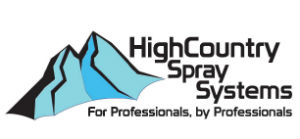There is much contention in the industry as to whether most contractors should make or buy their anti-icing/deicing liquid which is frequently referred to as brine. When I say buy it, I mean as a pre-mixed ready to use solution. When I say make it, I mean generally take some dry base chemical and put it in a mixing vat and add water. Then agitate to disolve the dry base. Most any chemical you would want can be purchased in either form- dry or in solution. Here are some general (not all-encompassing) thoughts on the strengths and weaknesses of each method:
Make you own brine-
Most commonly done with salt & water. Can be done with flake Mag Chloride or pellet calcium chloride as well. Shortcomings are:
* you need a non-freezing water supply to your brine making tank
* brine maker needs power for agitation so electricity must be available
* need a dependable supply of dry base chemical and likely need a place to store it. (dry but near the brine maker)
*quite a bit of work shucking bags and monitoring mix for consistancy
*need to study and research if you take on blending or putting in your own additives. for example, salt brine is easy to make but doesn’t work much colder than 25*F, so many companies add vegetable byproducts of several types to improve cold performance. This can take a lot of research and extra effort.
*Specifically manufactured brine making systems are quite expensive and add to the cost of adopting liquids.
Strengths are not so numerous but can be compelling:
+ Much lower cost to produce per gallon
+You can control your supply
+Not dependent on trucking/transportation as heavily
Pre-mixed ready to use liquids
Shortcomings:
*Must have a storage tank or be close to a depot for pickup
*cost per gallon can be significant(although cost vary widely by base chemical and by transporation costs)
*delivery can be an issue, especially mid-season. Tank trucks & icy roads do not play well together
Strengths of ready to use liquids
+ Minimal hassle to prepare to use
+storage tanks are cheap
+blends are readily available
+good consistancy between loads/batches
Biggest deciding points
Availability of product (what can you get?)
What kind of facility do you have? (water & power, room for storage- dry or tank)
What chemical(s) does your climate dictate you use?
What does the state DOT use? Other contractors in your area?
Now I will briefly cross into editorial territory. IMHO it is better when first starting with liquids to find a pre-mixed liquid that is readily available and has proper support from a sales support person or team. Take all the advice you can get from the manufacturer of your liquid.
See our web page (www.HighCountryIS.com ) for a free downloadable list of companies that make/sell anti-icing and deicing liquids.
Next topic will be selling the product & service
Thanks for reading. Be back in about 10 days.
